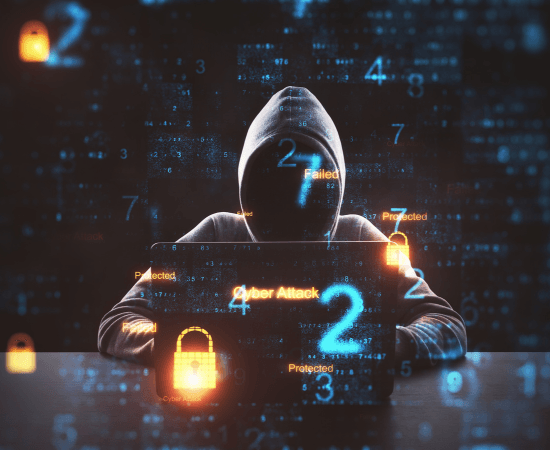YOUR BUSINESS IS VULNERABLE WITHOUT THE RIGHT SECURITY MEASURES FOR AT HOME WORKERSWritten on the 31 May 2023 )
What security measures do you have against cyberattacks? Working from home has given greater amounts of flexibility to employees and employers alike. But with more ways to access company data, comes additional security measures to secure a company’s data. While many employers give their employees business computers to access company data, these nearly always reside on the same network as the employee’s personal computers, which are more susceptible to attacks. A compromised employee’s personal computer can have a variety of detrimental effects on the individual and the organisation. Sensitive information about the person, including login credentials, financial information, and personal information, may be stolen, or used inappropriately. This may result in identity theft, financial ruin, and reputational harm. In a professional setting, a compromised computer can lead to the loss or theft of important firm data, including secret customer information, financial data, and intellectual property. This could damage the business’s reputation and have negative legal and financial repercussions. How does a hacker get in? Phishing emails are one of the most popular methods used to break into personal computers in a professional setting. These are emails that, despite appearing to be from (for example) a bank or a government institution, are actually coming from a malicious actor. If the receiver clicks on a link or attachment in the email, malware may be installed on their computer. Unsecured Wi-Fi networks are another method that personal computers can be taken over. Many employees connect to the company’s network using their personal laptops or devices, which makes it easy for hackers to access the devices if the network is not properly secured. What happens if one of my employee's personal machines is hacked? When a hacker gains access to a user’s computer, they can take private corporate information, sensitive data, including login credentials, financial information, and personal information. They may also use the compromised computer as a stepping stone to access other areas of the network, or they may instal malware that spreads throughout the company’s network and compromises other computers. In addition, the hacker might carry out additional attacks against the same business or other targets using the compromised computer. In the worst-case situation, the hacker might possibly cost the business a lot of money, harm its reputation, and compromise private information. What can I do to prevent this? A multi-layered approach that incorporates both technical and non-technical safeguards is needed to prevent a cyber security assault. To safeguard networks and systems, technical techniques such as deploying firewalls, antivirus software, and intrusion detection systems can be used. It’s crucial to set strong password policies, two-factor authentication for all accounts, and routine software and system updates to address known security flaws. On the non-technical side, it is essential to inform staff members on safe computer practises, such as staying away from insecure Wi-Fi networks, not clicking on suspicious links, and reporting any suspicious activity. To lessen the effects of a successful attack, a disaster recovery plan must be put into place. To find and fix system vulnerabilities, businesses should do frequent security audits. The last line of defence If all else fails, you should always have backups of your company data that are not accessible to your users. This is crucial for ensuring the safety and availability of your important business information. While your current data storage may contain high security measures, it can still be susceptible to data loss due to accidents, cyberattacks or other unforeseen events. By creating backups of your data you can secure business data including emails, documents, and contacts and will have the ability to recover this data quickly in the event of a disaster. If you are interested in investigating whether your systems are secure, contact us today. |

